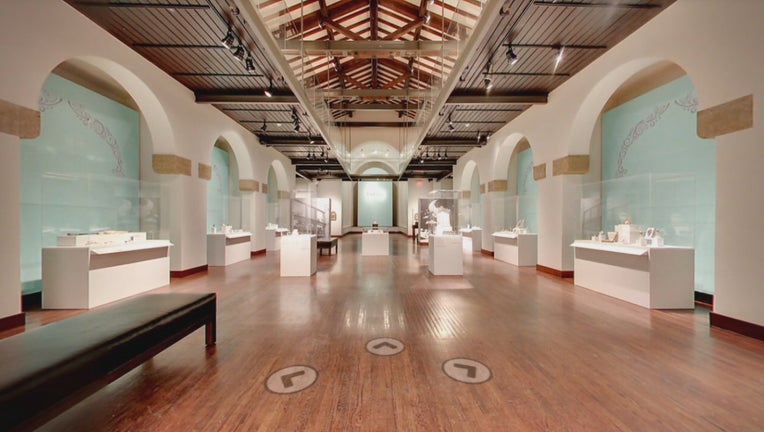The Museum of Russian Art in Minneapolis shares exhibits online amid COVID-19 pandemic

Museum guests can go through a 3D virtual tour of the Museum of Russian Art.
MINNEAPOLIS (FOX 9) - From paintings of Russian leaders and the masses to children's drawings of owls, The Museum of Russian Art in Minneapolis shows people what the culture of Russia was like from the 1300s to today. Now, its mission continues even in the midst of a global pandemic.
“We have visitors who come from around the country every year because we are unique,” said Mark Meister of the Museum of Russian Art. “We are the only museum of this type in the United States."

The Museum of Russian Art in Minneapolis shares exhibits online amid COVID-19 pandemic
The Museum of Russian Art in Minneapolis shows people what the culture of Russia was like from the 1300s to today. Its mission continues even in the midst of a global pandemic.
Like other cultural institutions, the museum shut down and furloughed all its workers in mid-March because of concern about the spread of COVID-19. Before it did, the museum posted a half dozen exhibitions from its archives on its website in order to keep its doors virtually open even though it may be physically closed.
"So we knew people during the pandemic when they were stuck at home would want things to do and reviewing what was in the museum,” said Meister. “If you had seen them, you could use a refresher. Most likely you hadn't seen them so this would be a good opportunity."
The exhibitions range from stunning color photographs of the silk trade from Tsar Nicholas II’s photographer to the architecture of imperial St. Petersburg to the artwork of Russian stamps. A Twin Cities real estate technology company even created a 3D virtual tour of the museum, so visitors can see what it’s like to walk through the galleries digitally.
"It’s not like being at a museum, you can't walk right up into the art,” said Bryn Erickson of Real Vision. “You can't fully appreciate the value of art unless you are physically observing. But I would say it is pretty good for what it is."
So far 5,000 people have visited the museum virtually over the last couple of months compared to the 30,000 physical visits it gets every year. Museum officials say anything that helps bring Russian culture to a new audience is a masterpiece.
"I wish we weren't closed,” said Meister. “I'm happy we can provide this and gives us ideas how we can provide things in the future."

